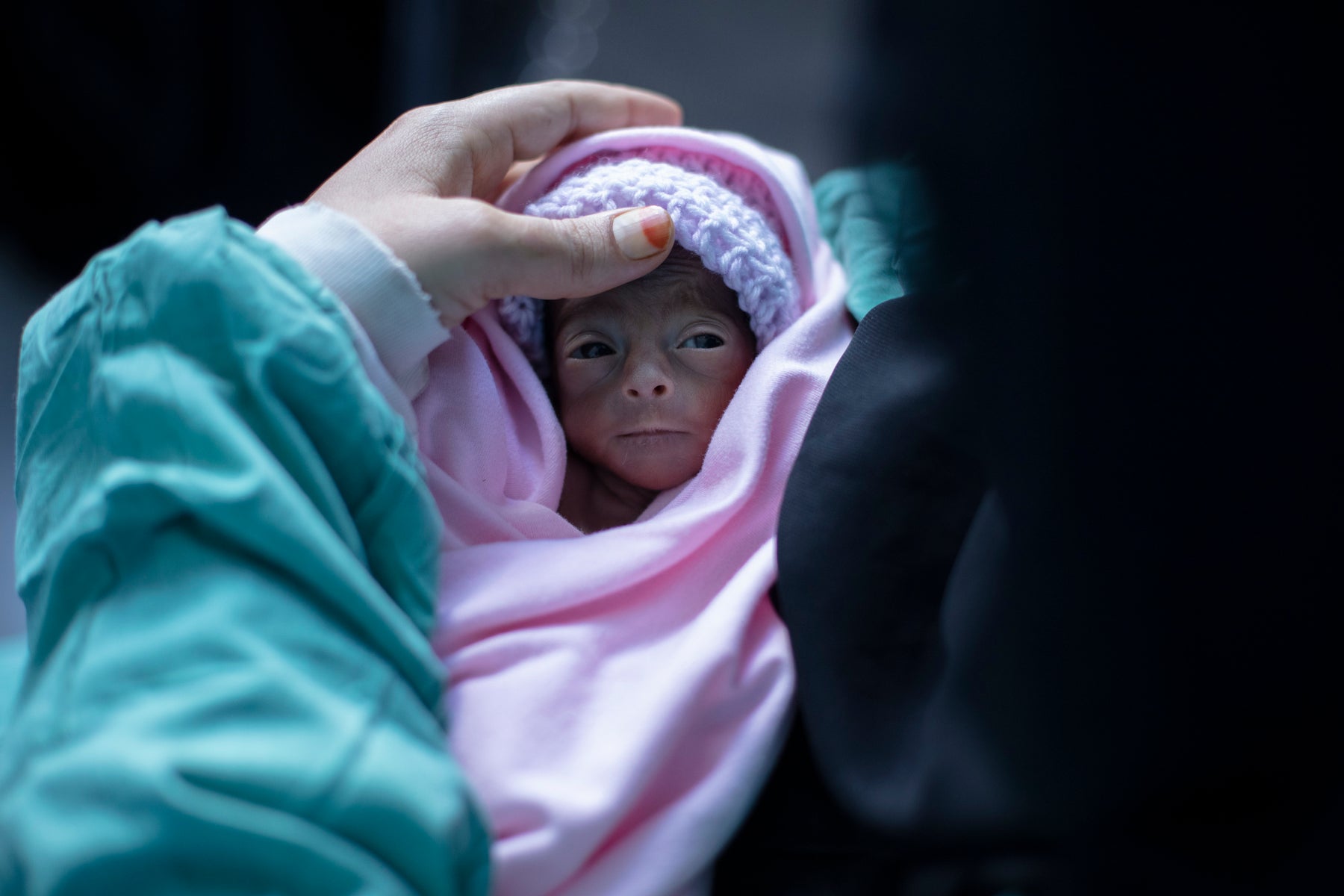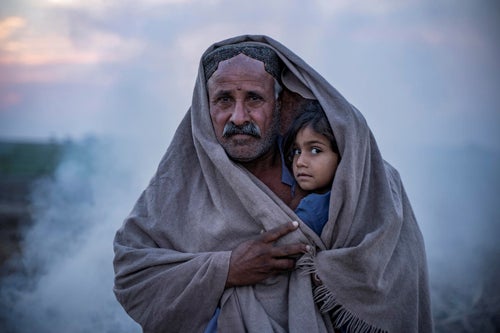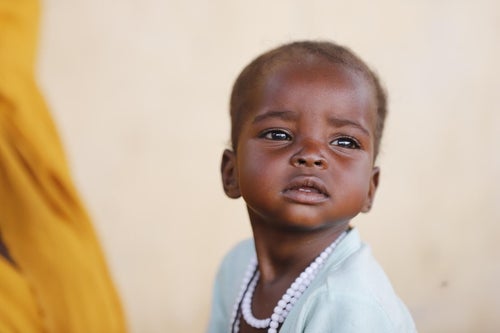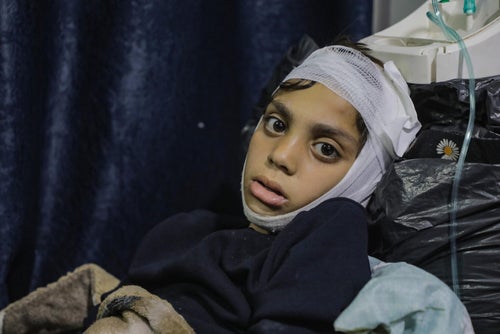What would it take for you to flee your home? What would you do if a bomb landed outside your house? These are questions that real families around the world have to answer every day.
What would you do if your parents tried to marry you at 15?
“I was 15 when the proposal came from the groom’s family,” says Shanti from Nepal. “I had no details about the boy. My parents did all the arranging.” Shanti knew she didn’t want to leave school and get married, but she couldn’t convince her parents.
Shanti needed help and thankfully, she wasn’t alone. UNICEF have a special community of monthly donors called Global Parents who keep children safe from dangers like child marriage from right here in Australia. They’re helping us support children’s clubs around the world. Run by young people for young people, these clubs are part of UNICEF’s frontline defence against child marriage.
“I spoke to the facilitator of the children’s club. She came and spoke to my parents and at last they agreed not to marry me. We stopped my marriage.”
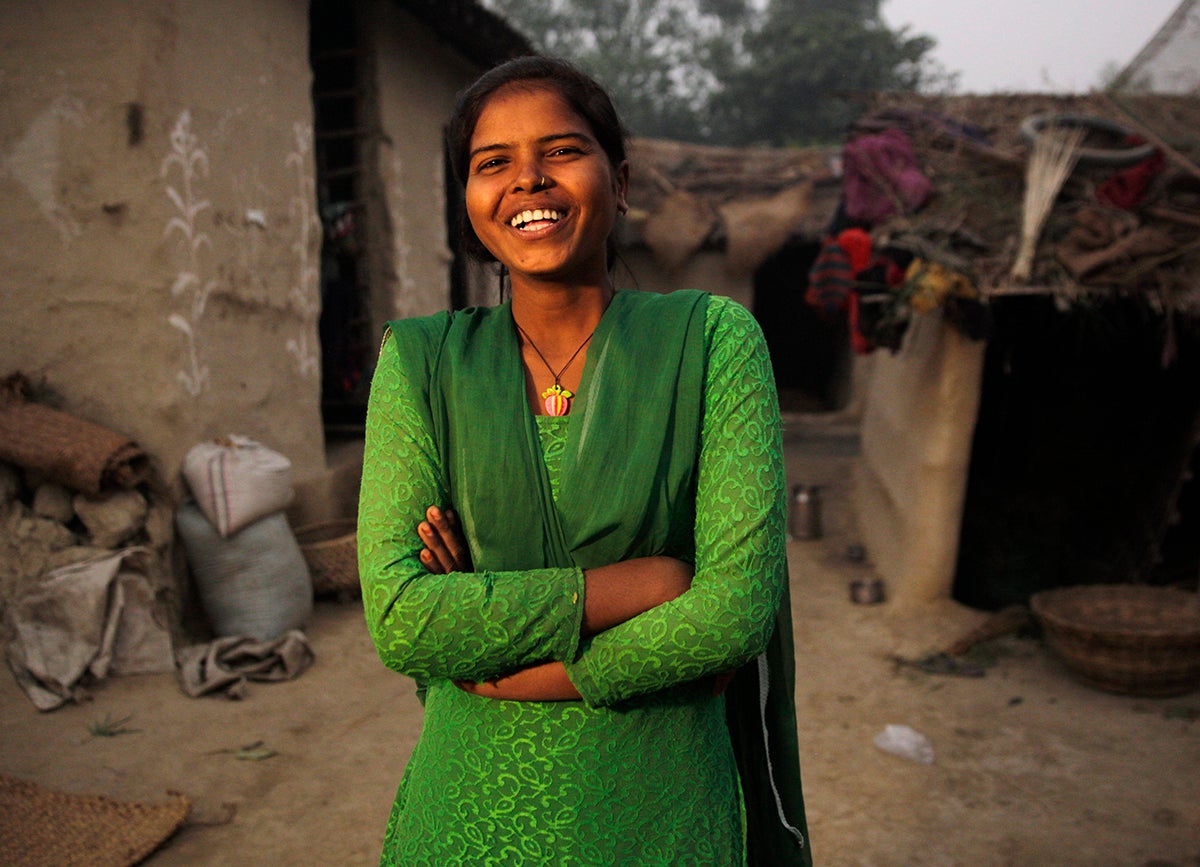
Every year, Shanti’s story becomes more and more common. Children’s clubs like hers are a critical part of why the rate of child marriage has dropped more than a third in South Asia in the last decade. Now, she’s free to help other girls escape child marriage, joining her local club as a door-to-door campaigner in her community.
What would you do if after losing everything you owned, you realised you were pregnant?
Finding out she was pregnant should have been one of the best days of Ifikhar’s life. But this young mother’s happiness was marred by a hopeless situation: she’d fled her house in Yemen with nothing after an airstrike and was living in a bus with her husband.
They could barely afford to eat, but Iftikhar did all she could. She sold her gold earrings so the family could afford a tiny room. She walked kilometres to fetch clean water. One day, as she was hauling water, Ifitkhar started to bleed. Without any antenatal support, she gave birth to a tiny baby boy who was fighting for his life. 1 in every 37 newborn babies in Yemen dies in their first month of life. Baby Hassan’s future was uncertain.
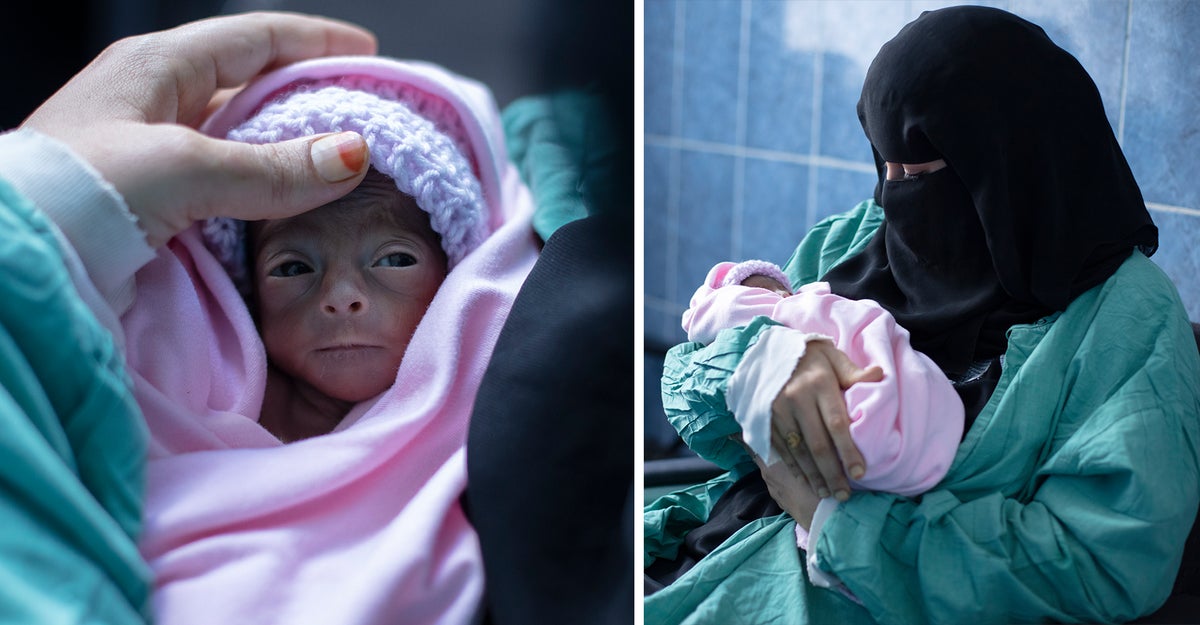
In the middle of one of the world’s most complex and dangerous emergency zones - there’s a small haven of respite and hope for mothers like Iftikhar. The Al Sabeen Maternal Hospital is still open in the country’s capital and doctors and nurses are fighting against all odds to keep babies alive. Without UNICEF’s regular donors - the lights would be off, the shelves empty, the health workers unsupported. But thanks to their support, doctors were able to act fast, Hassan responded well to their care and Ifitkhar finds new energy and hope despite everything she’s been through. “We have a baby. He will be well. He will come home with me,” she says.
What would you do if your children were missing in the world’s most dangerous war zone?
When Harbiya’s home in eastern Syria was shelled in 2018, this mother-of-six was left in a coma for two weeks. “When I woke up, all I wanted was to see my children. But only my eldest son was next to me.” She hurried home where, thankfully, she found her youngest daughter Aisha being cared for by neighbours. Harbiya’s relief was brief: four of her children were still missing and in danger.
For a month, Harbiya sifted through the rubble of her home and went door-to-door, asking neighbours and strangers if they’d seen her children. No one could help. Finally, Harbiya travelled almost 300 kilometres away to a camp for those fleeing violence.
As soon as he heard about a mother asking about four siblings, Yousef, a UNICEF-supported case manager in the camp, rushed to help. “I was shocked,” he says. “Her children thought she was dead, but she was here in front of me, asking about them.”
Minutes later, Harbiya’s family was reunited.
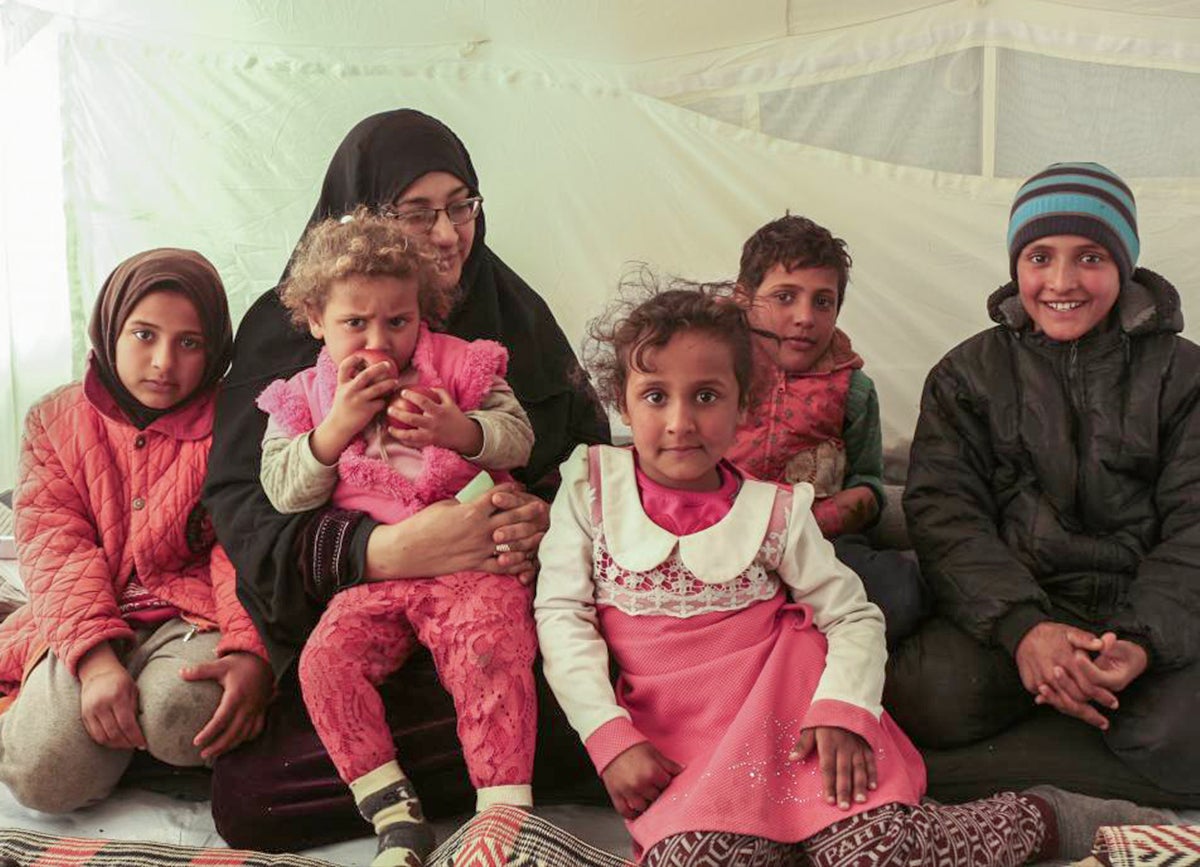
"I had nightmares that they were killed but I’d wake up more determined to find them. Now they are in my arms again."
Harbiya’s four children, aged 7 to 10, had been through their own ordeal - treated in a different hospital to their mother, taken in by another family and displaced by fresh violence, travelling a long journey to the Al-Hol camp. When they arrived, UNICEF-supported case managers started tracking down relatives and made sure they had winter clothes, blankets, healthcare and a way to learn.
UNICEF believes that no orphanage or institution is a better home for a child than a loving home with their family. That’s why we use innovative mobile networks and painstaking research to trace families of children found alone in conflict zones, refugee camps and after natural disasters. It’s one of the toughest jobs any charity does but our teams learn fast and we’re getting better every year: in 2018, 61 per cent of unaccompanied and separated children were reunited with their families or found another safe community home - up from 41 per cent in 2016 and 55 per cent in 2017.
What would you do if a bomb landed in your backyard?
Oleksandr is just like any other father who wants the best for his family - except that one afternoon, an 82mm mortar landed in his backyard in Ukraine, injuring them all. It was a ceasefire, but Oleksandr’s family live along the volatile “contact line” in eastern Ukraine which divides the government and non-government controlled areas.
“It hit the ground next to us and I hugged my mother [to protect her]. I was facing away but the others fell to the ground. There was dust in the air and people coming towards us,” says Oleksandr. His heroic instincts had helped in the moment, but they would have to continue long after the dust settled.
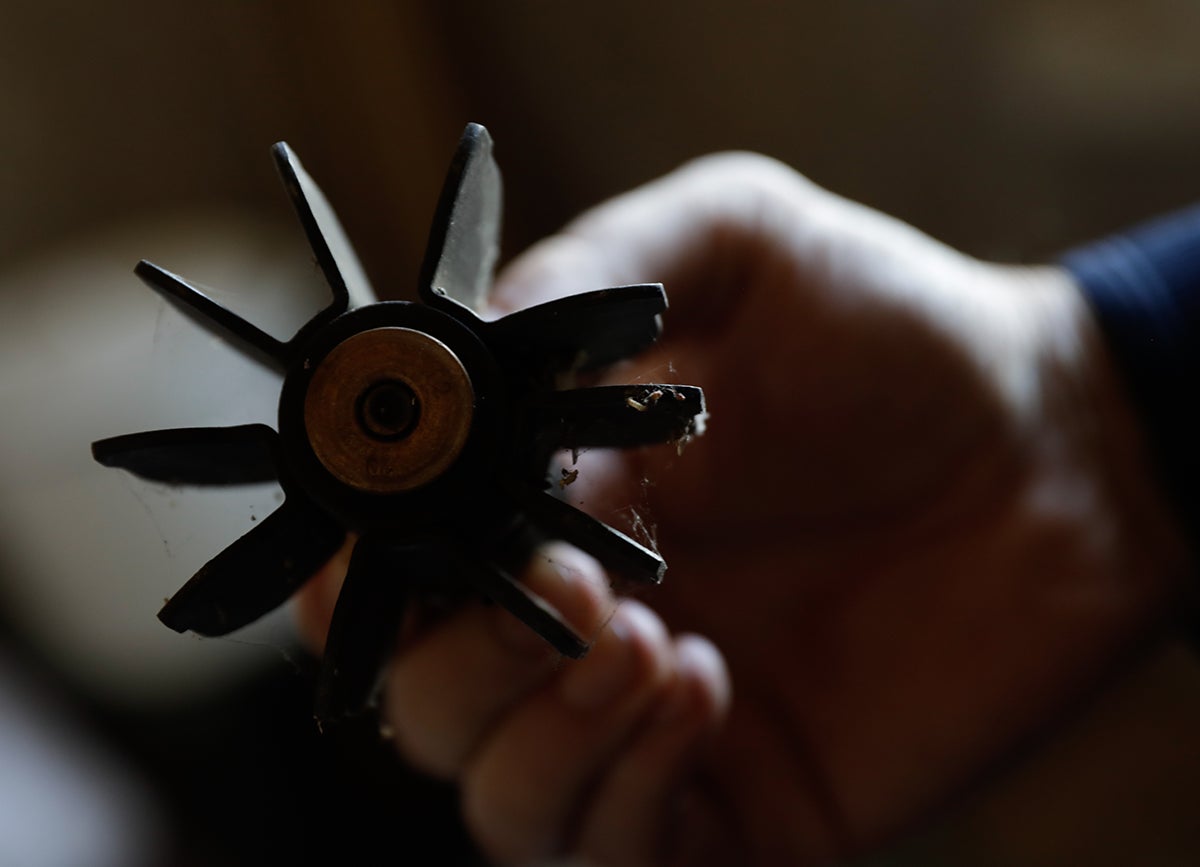
Oleksandr’s 10-year-old son Artyom was injured and they had to rush to find assistance. They’d later find out he had four pieces of shrapnel lodged in his back.
“All the bridges had been blown up and the ambulance couldn’t pick us up so we had to walk for 20 minutes. Artyom couldn’t walk as he was in a state of shock and bleeding. We didn’t understand what had happened. I wiped blood off his face and patted his back and I could feel that he was wounded.” Finally, they made it to a health centre, where a doctor removed most of the shrapnel.
Fathers like Oleksandr know what’s best for their children. They just need help to protect them until their communities are safe again. That’s where UNICEF and our committed community of regular donors come in - we’re keeping hospitals in Ukraine stocked with supplies, repairing damaged schools and water systems and we’ve taught more than half a million children how to protect themselves from mines and unexploded bombs.
What would you do if you realised your son was dying in front of you?
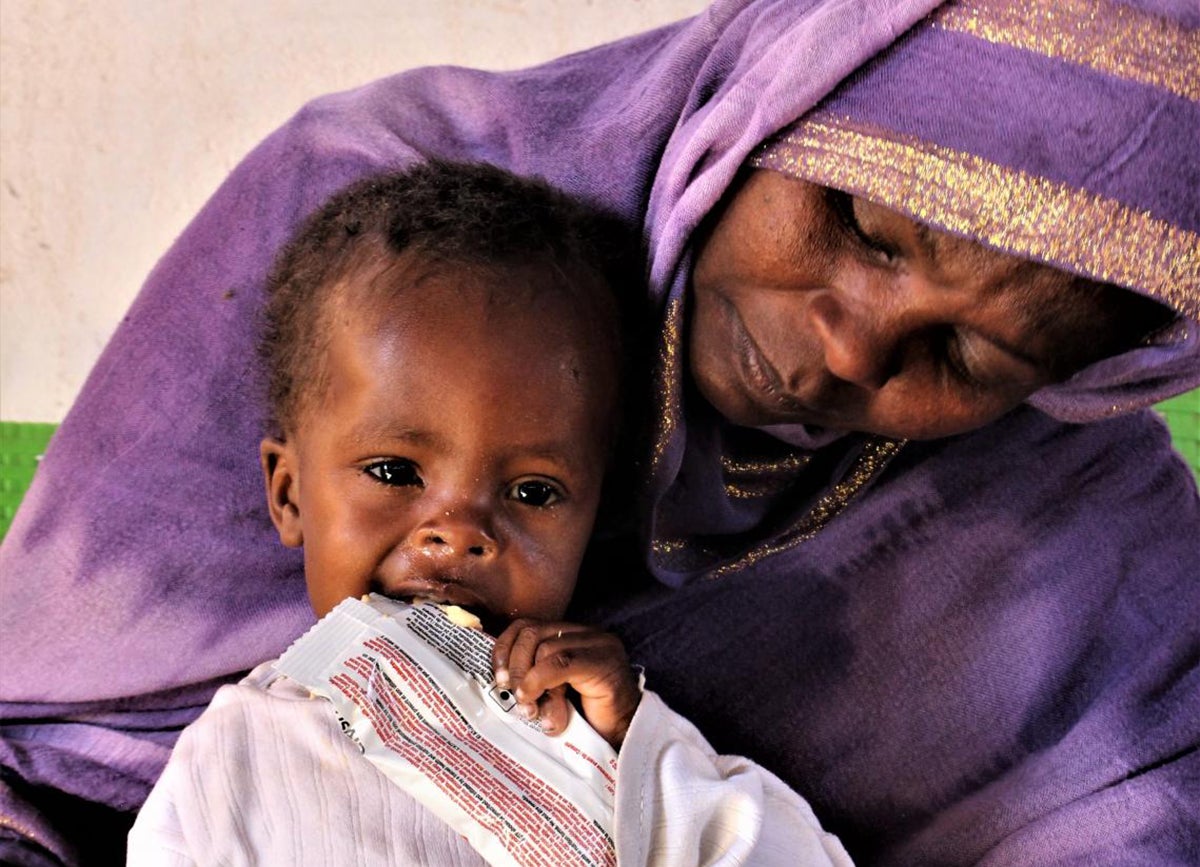
Thanks to his mother’s care, this feeding centre in Sudan and the regular donors who keep it stocked with therapeutic food - little Awab has survived malnutrition.
Years ago, his mother Amina lost a child to the deadly disease. She didn’t recognise the signs of malnutrition and didn’t make it to the hospital in time. “I will do everything for my child,” she says. “I’ve already lost one child to malnutrition but my youngest will survive.”
So when baby Awab fell ill, Amina set out to get help - fast. He had diarrhea, vomiting, and had no energy to play or smile. Amina rushed to the nearest UNICEF-supported feeding centre where Awab was quickly screened and treated for malnutrition with Plumpy’Nut®, a peanut-based therapeutic food. It’s part medicine, part food, and every mouthful helps Awab grow stronger. Soon enough, he’s back to his cheeky self - walking around the treatment room and laughing with other children.
It’s easy to feel powerless against the swell of global crisis and poverty but when our generous donors give to UNICEF, this is what they get: a world where cycles are broken, things get better and children smile again.
What would you do if terrorists strapped you in an explosive vest and told you to run into a crowd?
When 270 Nigerian schoolgirls were abducted in 2014 by Boko Haram, the world was shocked and a movement calling to #BringBackOurGirls swept social media. Years on, child abductions in Nigeria continue - but the world has barely noticed.
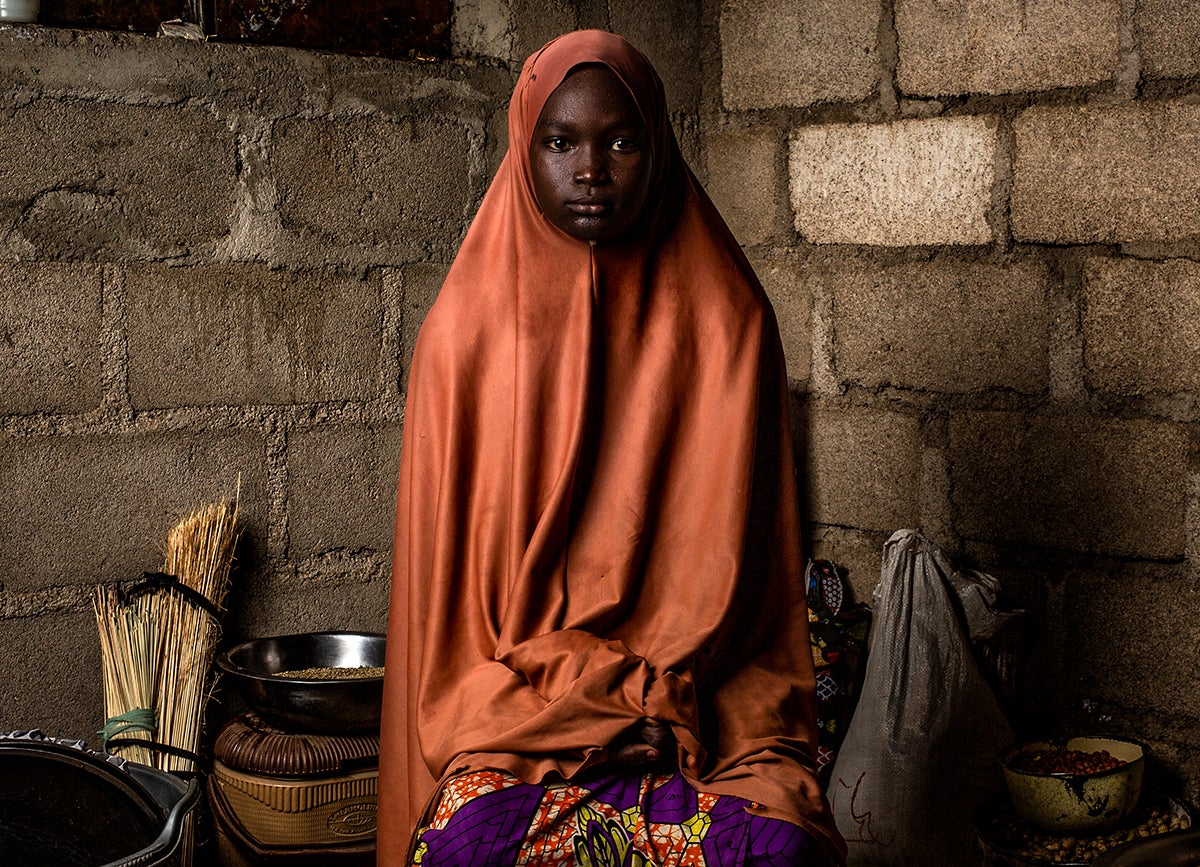
Halima* was just 12 when an attack on her hometown started a tragic sequence of events that would end with her strapped into an explosive vest, desperately seeking help.
In one night, an armed group stormed Halima’s village, killed her parents in front of her and abducted her. The teenager was trapped with the people who murdered her family. “It was very difficult. They were beating me, they refused to feed me, so I sneaked around to find leftovers from their meals,” she says.
Halima says she cried so much that after five days the group wanted to get rid of her. But she wasn’t free: they put a vest with an improvised explosive device on her, told her to run and push the button when she saw people. She didn’t listen - instead trying desperately to find a safe place until finally, she came across an armed man who took the vest off.
Now, Halima lives with her extended family and receives counselling to help her recover. She’s determined to reclaim a peaceful future and UNICEF, the children’s charity on the ground in Nigeria, is determined to help. Thanks to our passionate community of Global Parents here in Australia, we can be there for children like Halima with psychosocial support and a way to learn through crisis. This year, we need to help 7,000 children in Nigeria who’ve been captured by or involved with armed forces to recover and reintegrate into their families and communities.
(*name changed to protect identity.)
What would you do if children around you were orphaned by a deadly disease?
Despite their own suffering, some survivors of Ebola had the opportunity to become a lifeline for children orphaned by the virus. After recovering, some patients bravely took on the most important job in the world: caregiver.
Kavira and Richard were among those carers. They both had antibodies in their systems that protected them against re-infection, which meant they could safely join the UNICEF-supported nurseries that opened next to Ebola treatment centres in the Democratic Republic of Congo (DRC). Children in the nurseries were monitored for signs of the virus and had daily medical checkups; but they also received love, emotional and psychosocial support from people like Kavira and Richard who had been cured.
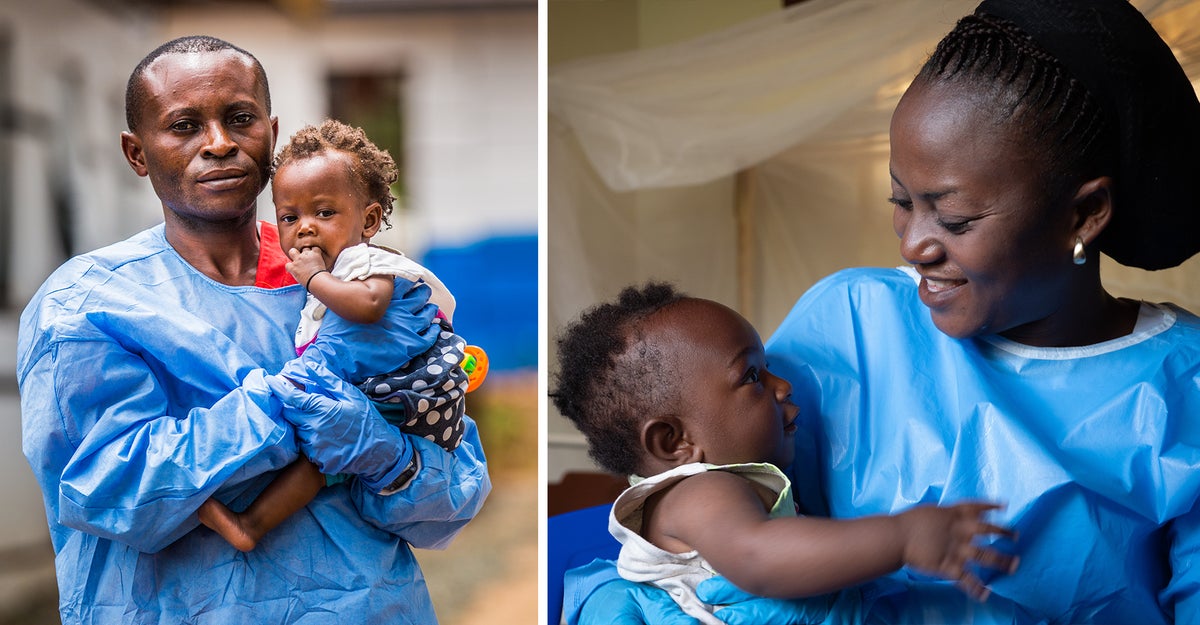
What would you do if there was an easy way to change a child’s life, every single month?
We can’t all deliver babies in warzones or share our homes with those fleeing violence, but becoming a regular donor to UNICEF is a quick, simple way for Australians to support children and families who desperately need a lifeline. Please stand with us. Become a regular donor and help UNICEF continue its life-saving work for children.
UNICEF and our partners know exactly what to do - we just need help to reach more children. That’s why we have a special community of UNICEF supporters called Global Parents who help us keep children safe from danger, disease and disaster. With their help, UNICEF has vaccinated, educated and protected more children than any other organisation.
When you sign up as a Global Parent, you join thousands of Australians dedicated to keeping children safe - no matter where they are or what comes their way. Please join our proud, growing community of Global Parents and start helping children today.
Related articles
Stay up-to-date on UNICEF's work in Australia and around the world



